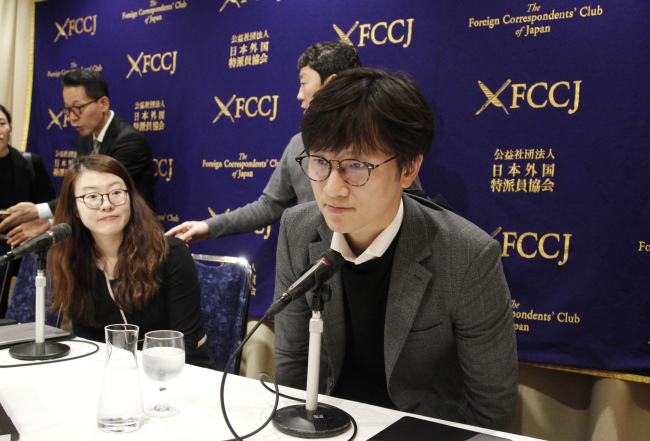TOKYO (AP) -- Lawyers for Korean wartime forced laborers have demanded that a Japanese steelmaker respond to their request to discuss compensation, warning they‘ll otherwise take steps to freeze its assets in their country.
The two lawyers on Tuesday asked Nippon Steel & Sumitomo Metal Corp. in Tokyo to respond by Dec. 24. They said if there’s no response, they‘ll seek to freeze part of the company’s assets in South Korea.

South Korea‘s top court ordered Nippon Steel to compensate 100 million won ($87,680) each to four plaintiffs forced to work at the company during Japan’s colonial rule of the Korean Peninsula. The court has made similar rulings on another Japanese company, triggering disputes between the two countries.
Japan maintains all wartime compensation issues were settled by a 1965 treaty between the governments.










![[Hello India] Hyundai Motor vows to boost 'clean mobility' in India](http://res.heraldm.com/phpwas/restmb_idxmake.php?idx=644&simg=/content/image/2024/04/25/20240425050672_0.jpg&u=)









